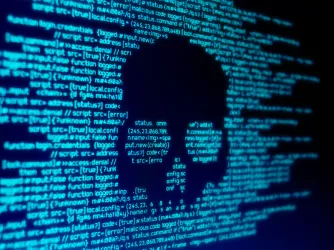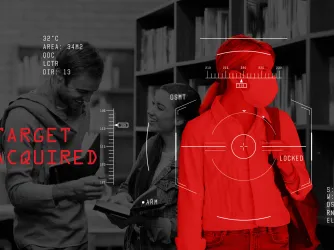Table of Contents
Mike Adams Highlights FIRE's Use of 'Carrots' and 'Sticks'
Alisha recently wrote about how FIRE uses proverbial "carrots" and "sticks" to help make America's universities safer places for free speech. FIRE prefers to use carrots, or friendly means, to encourage universities to uphold free speech rights on campus. These methods include correspondence with administrators and public praise for institutions that reform repressive policies.
Unfortunately, our carrots don't always sway universities, forcing FIRE to use sticks—in our case, usually public shaming—to embarass them into changing their ways. These sticks include exposing the worst violators of student liberty in U.S. News & World Report, defeating unconstitutional speech codes in court, and arguing that administrators should be held personally liable for violating students' rights.
Mike Adams recently wrote about the personal liability "stick" in a column for Townhall.com. After expressing his delight at how FIRE has helped to reduce the percentage of institutions with unconstitutional speech codes in the past nine years, Adams explained how he hopes that FIRE's December national mailing to the presidents and general counsels of 296 public universities will finally put speech codes where they belong: the trash bin.
... And now, FIRE has crafted an ingenious plan that promises to build on its momentum and make unconstitutional speech codes the exception, rather than the rule, at America's public universities.
FIRE has put hundreds of university presidents and university attorneys on notice that their wallets could be hit if they violate the free speech rights of students on their campuses. What they are trying to do is to attack the use of qualified immunity, which is used to exempt administrators from personal liability for monetary damages.
By sending nearly 300 certified letters to public university administrators across the nation, they are directly challenging the most dangerous problem in higher education today; namely, the continued shielding of those who knowingly violate the First Amendment in defiance of well-established law.
Adams, summarizing our letter, went on to explain how the recent district court decision in Barnes v. Zaccari (now on appeal) demonstrated that the defense of qualified immunity could no longer be blithely relied upon to shield university presidents and their staff from having to pay monetary damages for blatantly violating students' rights.
Recently, some judges have been deciding that college administrators are not shielded from personal liability in cases involving gross violations of the First Amendment. The case of Valdosta State University student Thomas Hayden Barnes is illustrative. Barnes was expelled in 2007 after he peacefully protested plans by then-President Ronald Zaccari to use $30 million in student activity fees to build two parking garages. The court decided the infringement was so gross that a reasonable administrator could not have been unaware of the illegality of the expulsion.
The recent spate of letters sent by FIRE will ensure that other similar rulings follow. The legal doctrine of qualified immunity only protects government officials from personal liability for monetary damages for violating constitutional rights if their actions do not violate "clearly established law" of which a reasonable person in their position would have known.
For years, public universities have argued that their speech codes did not violate clearly established law regarding students' First Amendment rights. But for the past generation, we have seen one legal decision after another striking down these codes. Having seen registered letters informing them of the decisions, administrators will no longer be able to argue that "a reasonable person in their position" would not have known the law.
Such recent cases include McCauley v. University of the Virgin Islands, where the United States Court of Appeals for the Third Circuit invalidated several policies, including a policy banning "offensive" or "unauthorized" signs, and DeJohn v. Temple University, where the Third Circuit invalidated a university sexual harassment policy for being overly broad and vague.
Ignorance of these recent developments, Adams explains, just won't cut it in court anymore:
Campus speech codes are no longer public property inherited by unknowing public servants. The speech codes now belong to those who oversee their maintenance. And they ignore them at their own peril.
Despite having this powerful weapon in our free speech arsenal, Adams praises FIRE for not resorting to the "sticks" until it's necessary.
Adam Kissel of FIRE summarizes the position of FIRE nicely when he states that the organization has found an appropriate balance between the carrot and stick approaches to dealing with university administrators. First, they offer online suggestions for public universities that have at least one policy that clearly and substantially restricts freedom of speech. The suggestions show them what they need to do to comply with the law.
But if they will not listen, there is strong language in these registered letters meant to awaken their conscience to their duty to obey the law.
We at FIRE thank Mike Adams for drawing even more attention to our national mailing and highly recommend that Torch readers read his piece in its entirety.
Recent Articles
Get the latest free speech news and analysis from FIRE.

Will free expression make a comeback at Haverford College?

FIRE statement on FCC approval of Skydance-Paramount acquisition

The mercenary spyware industry is a menace to global free expression
